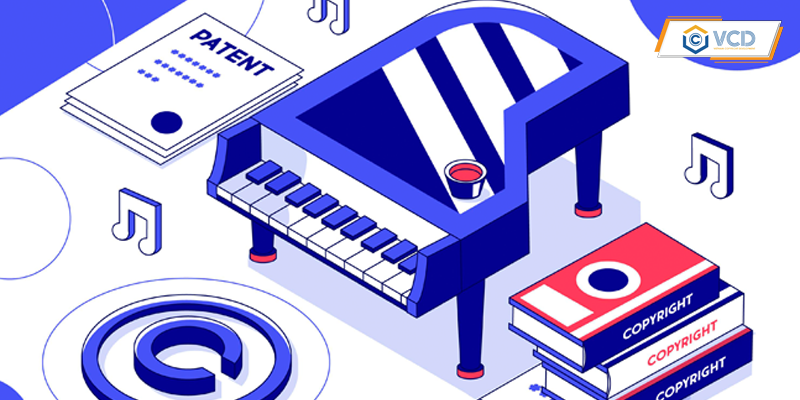Copyright for musical works of unknown author
The current copyright situation with musical works of unknown authorship is very complicated. Due to a lack of information about the author, many people use these works freely, leading to disputes over ownership rights and a lack of effective protection mechanisms. This causes damage to the authors (if identified), copyright management organizations, and users of the work. Therefore, it is necessary to understand the legal provisions on this issue. VCD’s article below will help you.
1. What is a musical work of unknown author?
According to Decree 17/2023/ND-CP and the provisions of Point d, Clause 1, Article 14 of the Intellectual Property Law, musical works are works expressed in the form of musical notes in music or other musical characters, regardless of performance or non-performance.
Music copyright is the author’s right to a musical work expressed in the form of notes in music or other musical characters shaped on audio or video recordings with or without lyrics. depends on performance or non-performance from the moment the author creates the work.
Therefore, a musical work is considered to have an unknown author when:
- No author information: no evidence was found about the creator of the musical work.
- Unknown author: many people are claiming to be the author or owner of the work or have conflicting information about the author.
- The author has passed away and has no legal heirs: the copyright cannot be transferred to any individual or organization.

2. Legal regulations on copyright for musical works of unknown author
Currently, the law does not have a mandatory regulation that authors must provide evidence proving that they are the author of a musical work when they register a copyright at the Copyright Office or authorize an organization to represent the collective. management authority. Whether they are truly the author or not depends on the commitment of the author/owner of the work with the relevant entities, the Copyright Office, and collective rights organizations. However, they must prove that they are the author/owner of the song when there is evidence against them. This means that they only have to provide grounds and evidence to prove when there is a dispute or conflict over ownership of that work.
As a result, the online community has sparked many fierce controversies. In reality, many famous songs have existed since ancient times and it is unclear who the author is or non-professional authors do not know clearly how to collect fees and the great value that music copyright fees bring. for them. In addition, if anyone can authorize the collection of music copyrights without evidence, it is very easy to impersonate the author for personal gain, blatantly collecting royalties from that song until the end of the song. when the real author of the song spoke up.
On today’s digital platforms, there are still individuals and units who abuse the policies of these platforms to “claim” works as their own to benefit themselves from royalties.
When content creators use musical works to create new recordings and post them on social networking platforms, they must get permission from the copyright owner. Because using another person’s work for commercial purposes requires the author’s consent, asking for permission is considered a mandatory obligation. In addition, the channel owner will have to pay copyright fees to the author according to the agreement between the two parties. The agreement must clearly state the royalty rate, payment method, and payment time. If in case of cooperation, the channel owner will have to pay copyright fees to the author according to the agreement between the two parties. If a product has been posted for a long time and is only discovered later, the author or the party authorized to manage it may request collection.
According to the provisions of Article 23 of Decree 17/2023/ND-CP, organizations and individuals who want to use the work must prove that they or the unit have made efforts to find the author but to no avail. After the application is approved, the State will be the representative to manage copyright and rights related to that work. At the same time, organizations and individuals whose applications are approved must pay royalties and be subject to inspection and supervision by competent State agencies on how to use that work.
Copyright fees that organizations and individuals using works will have to pay into a common account for rights holders who cannot be found or contacted. After 5 years, if the author is still not found, the collected money will be used for activities to encourage creativity, and propaganda and promote the enforcement of copyright and related rights protection according to the provisions of the Law. law after deducting management and search costs as prescribed by law.
VCD feels that it is extremely important to understand copyright regulations for musical works of unknown authorship. It not only helps protect the rights of authors, if identified but is also key to protecting the rights of copyright management organizations, avoiding violations of the law, and promoting industry development. music industry.
